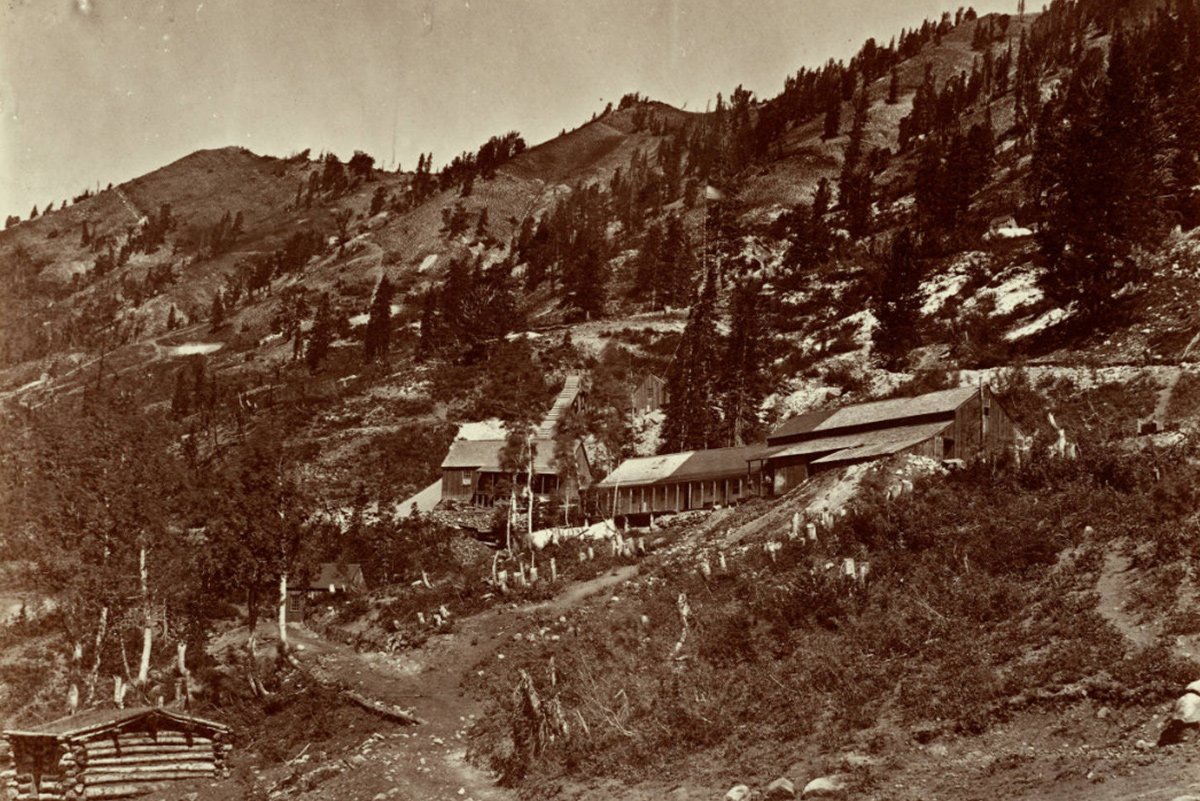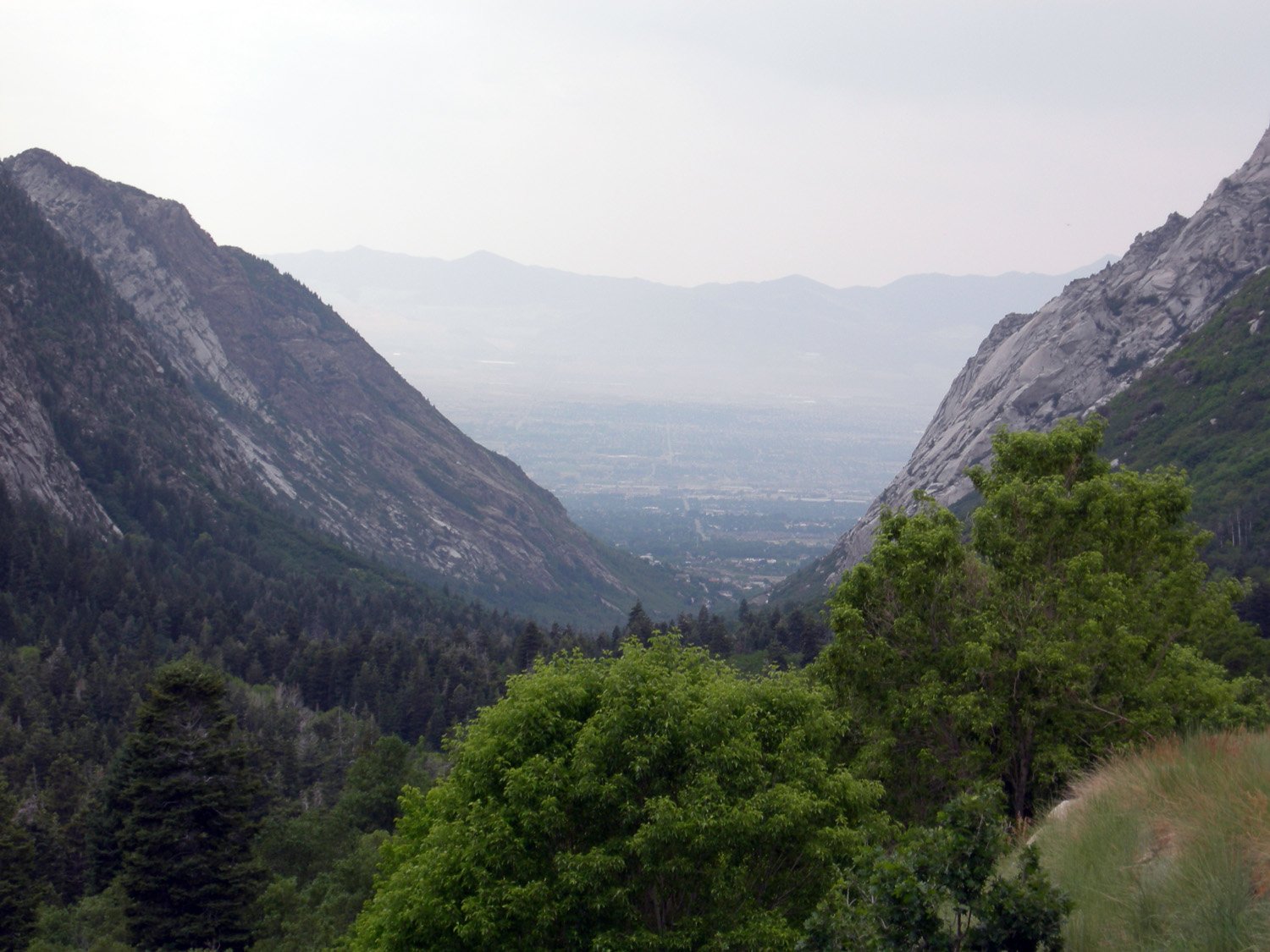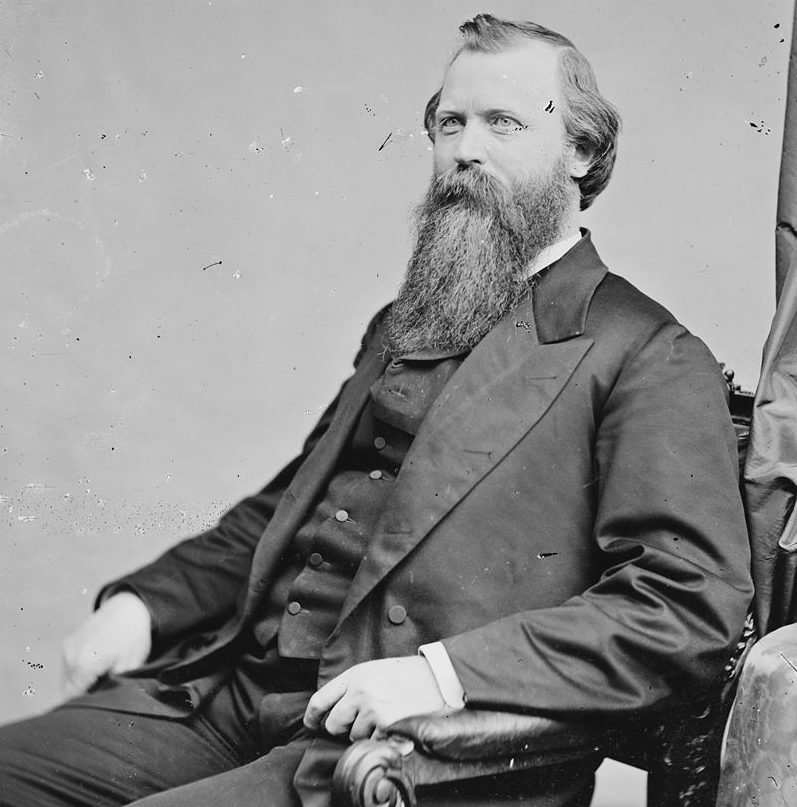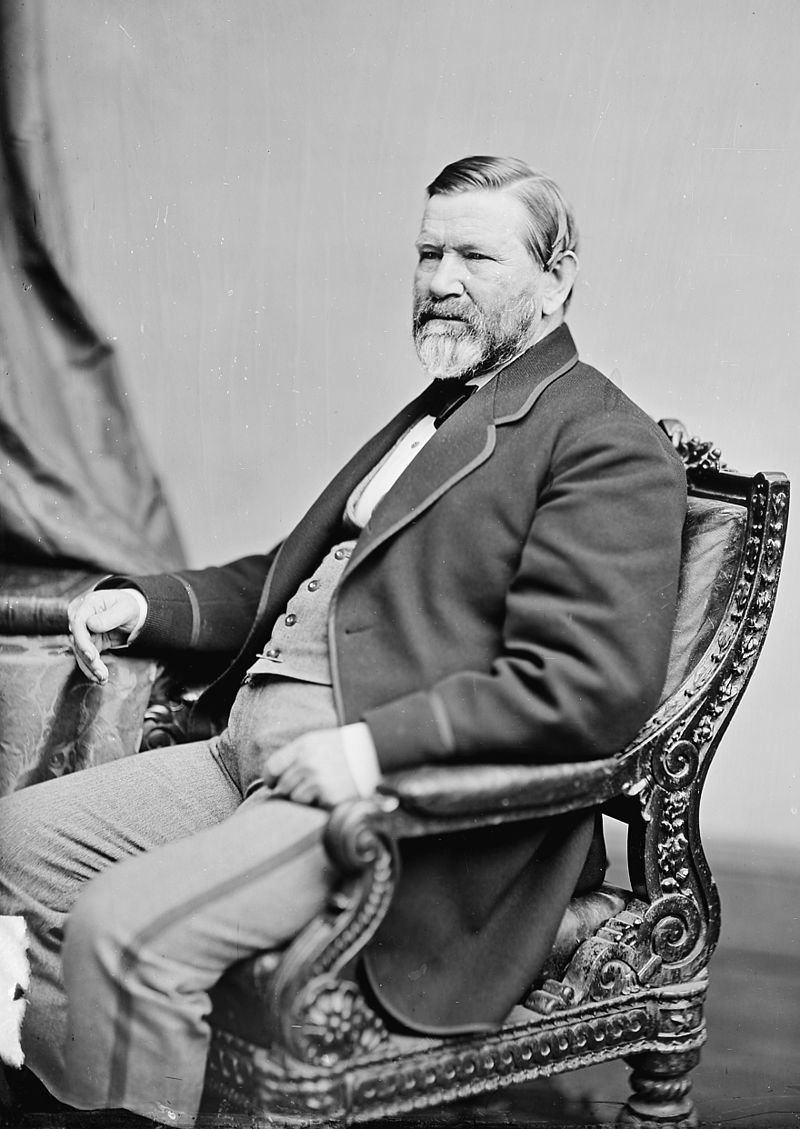How a Depleted Utah Silver Mine Almost Started a War With England

Emma Mine’s town district was eventually destroyed by an avalanche in 1885. Photo courtesy of Wikimedia Commons.
Local rumor has it that the Emma Silver Mine in Utah’s Little Cottonwood Canyon almost started a war with England in the 1870s. Located near the Alta Ski Area (of 2002 Winter Olympics fame), the Emma Mine consists of a large tunnel bored into the granite rock face of a remote Utah canyon.
After miners tapped out the central silver vein, knowing full well that Emma Mine was empty, an American senator and businessman attempted to sell off their shares in the project to hapless British investors.
US Minister to England Robert C. Schenck, an Ohio Republican, partnered with Trenor W. Park, one of the mine’s owners, to organize the scheme. The mine’s other owners included James Lyon as well as Horace Henry Baxter, a New York business promoter and a Civil War hero from Vermont.

Park and Schenck allegedly paid Yale chemistry professor Benjamin Silliman some $50,000 to write a report claiming that the Emma Mine was “one of the great mines of the world” and had “great value.” The mine produced $2 million worth of silver in the summer of 1871. However, the site was an “accidental deposit, or ‘pocket,’ [and] was not a true fissure vein,” according to an 1876 article from The New York Times.
By the time Park and Schenck schemed to sell Emma Mine, there was very little silver left inside the cavern. Moreover, the site was already difficult to manage because of the large amount of water that had permeated the granite. In short, Schenck and Park knew they were never going to get more out of the lode, and selling the place was nothing short of a scam.

Schenck and Park cut Lyon out of the sale of the mine. For his part, Lyon sued, claiming that Park and Schenck had bribed his lawyer, William Stewart — a Nevada senator — with stock from the defunct mine. In Lyon’s court case, Schenck and Park also conspired to use stocks to buy and sway the lawsuit’s jury.
Lyon likely lost his case in Utah because his lawyer, Stewart, later testified against Schenck and Park. Technically, the mine sale was legal, but Schenck and Park deliberately misrepresented the worth of the silver the site held.
Albert Grant, “one of the leading and most detested London financial wizards of the last half of the nineteenth century,” according to one source, promoted the sale of Emma Mine stock in the London financial markets. Although Grant sold off his stake in the mine, the worth of those shares plummeted to near zero once authorities revealed that the Emma Mine was depleted and, therefore, effectively worthless.

Ruffled by the potential geopolitical consequences, Congress conducted an inquiry into the matter. Because of their parts in the scandal, Schenck and Stewart became public pariahs. Stewart was already infamous — because of his extensive mine ownership throughout the West, his nickname was the “silver senator.” Thus, Stewart did not seek reelection after the Emma Mine affair became public, and he tendered his resignation to President Ulysses S. Grant.
London was severely displeased by the whole incident and threatened an investigation. Consequently, rumors began to spread that the scandal could spark an armed conflict. In any case, British threats to sue the US on behalf of the duped Emma Mine shareholders never materialized. Ultimately, the scandal only amounted to a war of words — and a historic embarrassment for the United States.
Today, the Emma Mine site’s only useful purpose is to provide the nearby city of Alta with a reliable source of fresh water.
Read Next:

Lauren Coontz is a former staff writer for Coffee or Die Magazine. Beaches are preferred, but Lauren calls the Rocky Mountains of Utah home. You can usually find her in an art museum, at an archaeology site, or checking out local nightlife like drag shows and cocktail bars (gin is key). A student of history, Lauren is an Army veteran who worked all over the world and loves to travel to see the old stuff the history books only give a sentence to. She likes medium roast coffee and sometimes, like a sinner, adds sweet cream to it.
BRCC and Bad Moon Print Press team up for an exclusive, limited-edition T-shirt design!
BRCC partners with Team Room Design for an exclusive T-shirt release!
Thirty Seconds Out has partnered with BRCC for an exclusive shirt design invoking the God of Winter.
Lucas O'Hara of Grizzly Forge has teamed up with BRCC for a badass, exclusive Shirt Club T-shirt design featuring his most popular knife and tiomahawk.
Coffee or Die sits down with one of the graphic designers behind Black Rifle Coffee's signature look and vibe.
Biden will award the Medal of Honor to a Vietnam War Army helicopter pilot who risked his life to save a reconnaissance team from almost certain death.
Ever wonder how much Jack Mandaville would f*ck sh*t up if he went back in time? The American Revolution didn't even see him coming.
A nearly 200-year-old West Point time capsule that at first appeared to yield little more than dust contains hidden treasure, the US Military Academy said.












